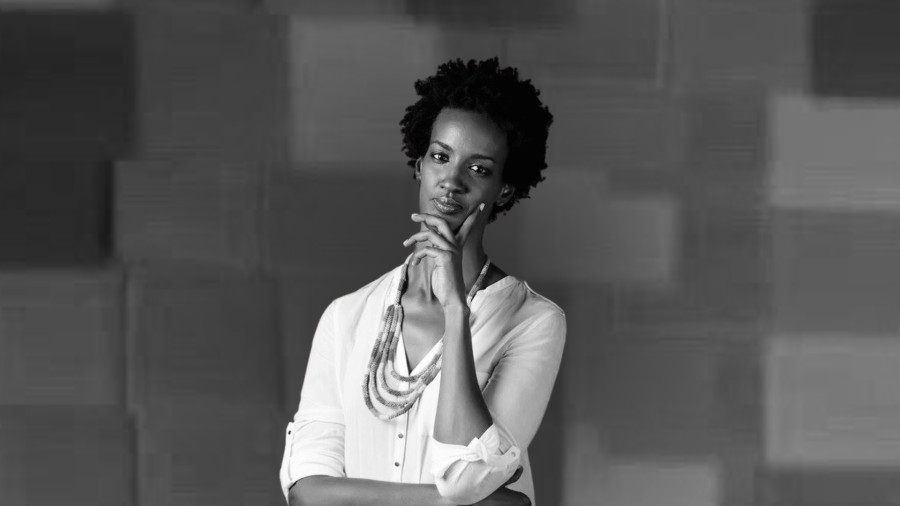Her journey to this role and to Canada is the story of a woman willing to risk it all in the name of justice. In the name of upholding human rights.
Ketty Nivyabandi was always the first to speak up. When injustices unfolded before her, she would step up to the frontlines of the battle and advocate for those who were equally outraged but struggled to use their voice.
Her early years of activism began in her university days in Nairobi, Kenya. As an international student from Burundi, Nivyabandi and a group of other East Africans noticed their fees vastly differed from what domestic and other international students were paying.
After hearing whispers and cries of frustration over fees hiked by the university’s admin, Nivyabandi remembers thinking, “We can’t just accept this.” It was enough to motivate a united front of education-hungry international students, with their fiery leader, Nivyabandi, who organized a sit-in at Vice Chancellor Dr. Brown’s office for nearly half a day.
The Dean came, and shortly, several staff members, but they wouldn’t budge. Eventually, the Vice Chancellor invited them to voice their concerns. Nivyabandi laid out the injustices of studying in a foreign land and being unable to afford what they came for–what their parents sacrificed for–and because they refused to accept it, there were no hiked fees.
It set the tone for the activism Nivyabandi was passionate about–the real and sacrificial activism that sometimes meant being face-to-face with violence. Holding power accountable started in her early years of journalism in Burundi.
Working for a small pan-African radio station, Nivyabandi would tour her country reporting on human rights violations like the mistreatment of women during the civil war, former and demobilized soldiers’ integration back into communities, the increase of sexual violence, and more. Nivyabandi says she also did civic education on elections through radio programs.
“All of that, I think, prepared me to see society in a multifaceted way, to understand that you can have a policy, but how it impacts people is very different from how it is intended. That's what motivates me. It's a desire to stop that violence and suffering that comes with conflict,” says Nivyabandi.
In 2015 Nivyabandi organized a revolutionary women's peaceful protest following the violence after Burundi’s then-president, Pierre Nkurunziza, sought a third unconstitutional term in office right off the heels of a 10-year civil war.
Protests ensued all over the country in outrage at Burundi’s broken future. But none of the protests prioritized the people most affected: women. Law enforcement authorities blocked roads and patrolled the streets to forbid public demonstrations.
In a thoughtful approach, Nivyabandi and other women organized a meet point in town, catching the police by surprise when hundreds of women, waving white handkerchiefs, were at the city’s centre. “I had police pointing a gun at me,” recalls Nivyabandi. Tear gas and water cannons filled the skies with war cries of women desperate for Burundi's change.
A coup took place–but not for long–and soon, Burundi's head of state was reinstated. This further oppressed and sent anyone critical of his governance into exile, including Nivyabandi.
“Had I stayed, I was going to be in danger. I was facing very real threats to my life,” says Nivyabandi. A few months later, Nivyabandi found herself at Canada’s doorstep, as a refugee. She initially came to visit family but was forced to seek asylum because she couldn't return to Burundi.
That didn’t stop her from fighting. Nivyabandi worked with an international women’s organization founded by women who won a Nobel Peace Prize. They created an organization to amplify the voices of other women doing similar work who had yet to receive the same recognition.
Nivyabandi worked with several women activists across Syria, Yemen, Cameroon, South Sudan, Myanmar, and more. “In the middle of a conflict, watch carefully, you don't always hear the voice of women,” says Nivyabandi.
Some initiatives Nivyabandi worked on included bringing women activists to Canada to advocate with Canadian officials, media workshops, and a platform of credible global women experts. The latter is a definite need as the tendency to call a white man for expertise on any conflict is strong, says Nivyabandi.
Nivyabandi says she is proud that in Canada, one of Amnesty’s primary focuses is on racial injustice. “We've built an understanding internally that systemic violence, systemic discrimination and racism is a unique form of violence against racialized communities, Black communities, for instance.”
As the only Black woman or Black person in some rooms, Nivyabandi says it’s difficult when the dynamics make you feel that you don’t belong in that room and you have to bring the rights of others to the table. “The strategy that I adopt whenever I am in those situations is I sort of clothe myself with [the fact that] the communities that I'm speaking for and my knowledge give me the power,” says Nivyabandi.
Nivyabandi says the danger for most Black people in leadership roles is not getting those roles but staying true to yourself and the communities you represent in those roles. “It's challenging to be a Black woman leading any organization or any company that has traditionally been led by people who don't look like you,” says Nivyabandi, “Whatever system you've inherited is not built for you.”
Nivyabandi says she’s also happy to have tackled anti-racism internally. “I'm proud to have several Black women in the leadership team. For our Black and racialized employees to have their needs addressed and to create an environment in which they can flourish. It takes time, and it's hard work.”
Their Canadian membership now reflects the “real communities who experience the bulk of human rights violations in Canada,” says Nivyabandi.
To young activists at heart (and anyone!), Nivyabandi shares the lessons she’s learned on this journey:
- Don’t let anyone question your lived experiences
- Have a strong support system
- Prioritize your self-care and find what works for you (Nivyabandi’s 15-minute Afrobeats sessions between difficult meetings are her definition of joy)
- Pause now and then
- Surround yourself with things and people who remind you of who you are and why you belong
“Representation alone is not enough. If you are in a room that's not meant for you and you're not changing the makeup of the table or who's at the table, then what are you there for?” asks Nivyabandi.
This story is part of our “Women’s Month" series, where we celebrate the remarkable journeys and accomplishments of Black Women In Canada.

 By
By 


